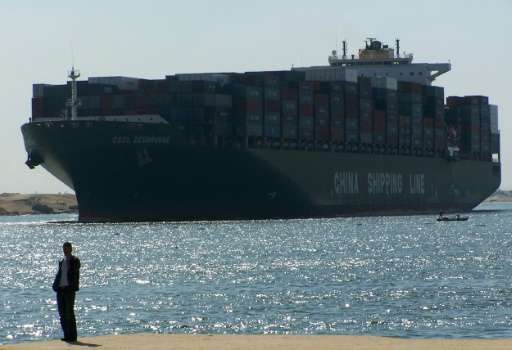Stowaway species treaty to come into force in 2017

Ships around the world will have to carry ballast water treatment facilities on board from next year to prevent the spread of potentially invasive aquatic species, under a new international treaty.
According to green group WWF, over 10 billion tonnes of water are moved around the world in ballast tanks every year—pumped in at Shanghai or Tangiers and dumped in the harbours of Rotterdam or Valparaiso to rebalance the ships as they load or unload cargo.
In this way, around 7,000 species of fish, crustaceans, algae, invertebrates and even viruses and bacteria, travel unnoticed across the world's oceans every day.
The deal comes into force on September 8, 2017 after Finland ratified it on Thursday—12 years after it was adopted.
"This is a truly significant milestone for the health of our planet," International Maritime Organization secretary-general Kitack Lim said in a statement.
"The spread of invasive species has been recognised as one of the greatest threats to the ecological and the economic well-being of the planet," he said.
Sometimes microscopic in size yet devastating in impact, invasive hitchhiker species can swiftly colonise new marine habitats, wrecking ecosystems on which humans also depend.
In the early 1980s, the North American comb jellyfish quit its Atlantic home, hid away in the belly of a cargo ship and headed for the Black Sea.
By just over a decade later, its descendants had decimated the anchovy population in their new surroundings.
The IMO's Convention on the Control and Management of Ships' Ballast Water and Sediments was adopted in 2014 but had not been ratified by enough sea-faring countries to enter into force.
The convention required a minimum of 30 countries representing no less than 35 percent of global merchant tonnage to ratify it.
Fifty-two countries have now signed up to it.
© 2016 AFP
















